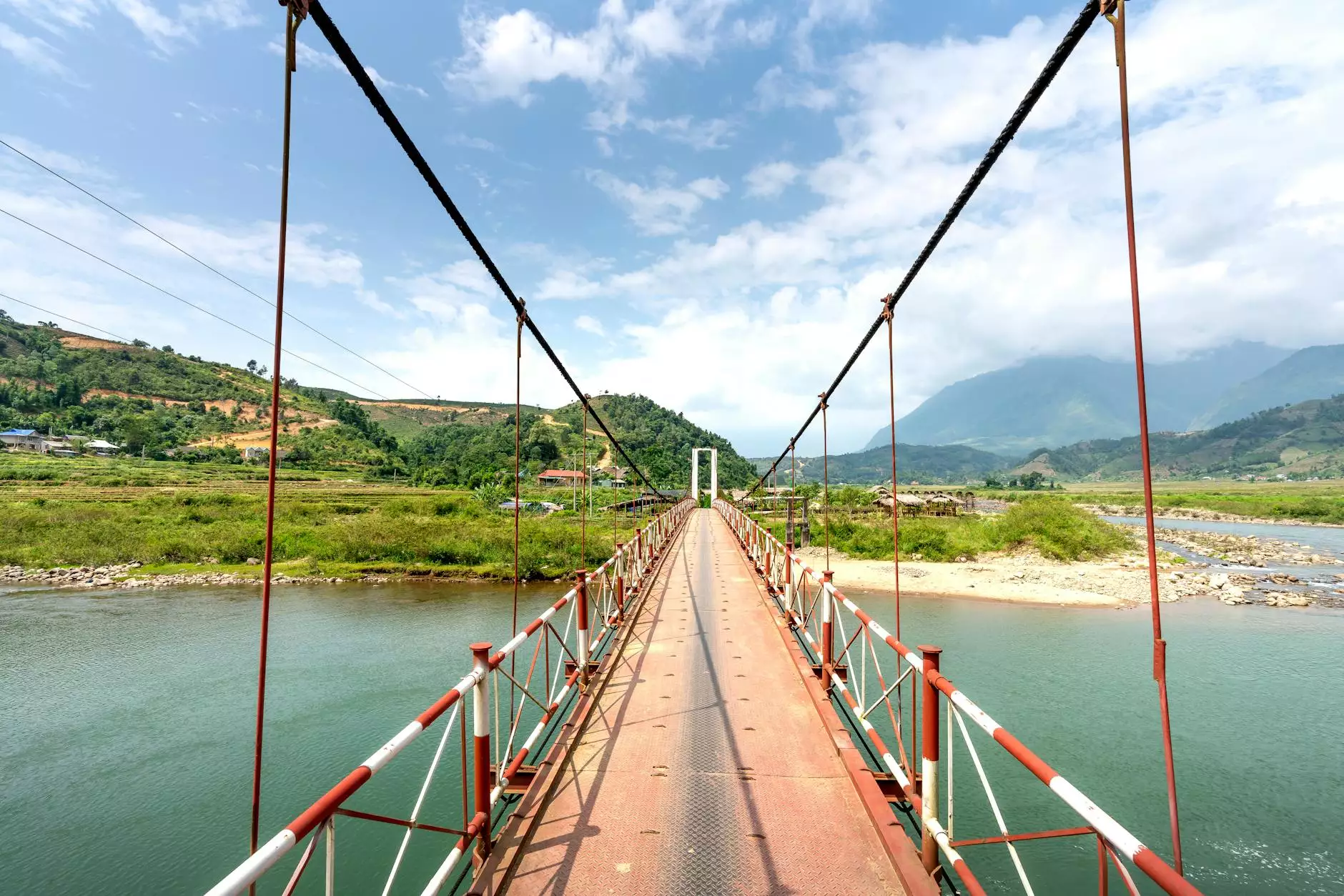The Ultimate Guide to JEEP SUSPENSION: Enhance Your Off-Road Experience

JEEP SUSPENSION plays a crucial role in the performance and comfort of your vehicle, particularly for off-road enthusiasts. Whether you're traversing rugged terrain or cruising through city streets, understanding the various aspects of suspension systems can greatly enhance your Jeep's handling and overall driving experience.
What is JEEP SUSPENSION?
In simple terms, the suspension system of a Jeep is the collection of components that connect the vehicle's body to its wheels. It serves to absorb shocks from the road, thereby providing a smoother ride. More importantly, it helps in maintaining traction between the tires and the ground, especially crucial in off-road adventures.
Key Components of JEEP SUSPENSION
To fully grasp the importance of JEEP SUSPENSION, it's essential to understand the main components that make it function effectively:
- Coil Springs: Vital for absorbing shock and providing support for the vehicle's weight.
- Shock Absorbers: Reduce the impact of bumps and provide stabilization, ensuring a smooth ride.
- Control Arms: Connect the suspension to the vehicle’s frame and help the wheels to move appropriately during their motion.
- Leaf Springs: Often used in the rear suspension, they help in carrying the load of the vehicle while providing flexibility.
Types of JEEP SUSPENSION Systems
When it comes to Jeep suspensions, there are primarily two types: factory suspension systems and aftermarket suspension systems. Both have their unique attributes and purposes.
1. Factory Suspension Systems
Factory suspension systems come standard with the Jeep. They are designed to provide a balanced performance suitable for everyday driving. However, they may not always deliver the best experience during extreme off-roading. Here are some characteristics:
- Engineered for comfort on paved roads.
- Support moderate off-road capabilities.
- Typically more affordable, but may lack customization options.
2. Aftermarket Suspension Systems
For those looking to take their off-roading adventures to the next level, aftermarket suspension systems offer extensive customization options. You can choose from lifting kits, performance shocks, and heavy-duty springs. Here are some benefits:
- Improved Articulation: Enhanced wheel movement to keep tires on the ground.
- Height Adjustment: Allows you to lift your Jeep for increased ground clearance.
- Durability: Designed to withstand extreme conditions and heavy usage.
Benefits of Upgrading Your JEEP SUSPENSION
Upgrading your Jeep's suspension system can transform your driving experience. Here are some significant benefits:
- Enhanced Comfort: Enjoy a smoother ride over bumps and rough patches.
- Increased Towing Capacity: A better suspension allows for improved load management.
- Better Handling: Experience superior control and stability on all terrains.
- Customization: Tailor your Jeep's performance to suit your specific needs.
How to Choose the Right JEEP SUSPENSION System
Choosing the right suspension for your Jeep is essential for optimizing performance. Here are some factors to consider:
1. Purpose of Use
Consider how you plan to use your Jeep. Are you mostly driving on the road, or will you be tackling tough off-road trails? Your suspension choice should reflect your primary usage.
2. Budget
Aftermarket suspensions can range from moderate to high prices. It's important to set a budget that allows for quality components without sacrificing performance. Remember, investing in a good suspension can save you money on repairs in the long run.
3. Installation Method
Some suspension kits are easier to install than others. If you plan to do the installation yourself, opt for kits that come with detailed instructions or consider professional installation for complex setups.
4. Brand Reputation
Research brands that are well-known for their Jeep suspension systems. Look for reviews and testimonials to ensure reliability and quality.
Installation Tips for JEEP SUSPENSION
Installing a new suspension system can be a rewarding DIY project, but it requires attention to detail. Here are some tips:
- Gather Necessary Tools: Ensure you have all necessary tools including wrenches, jacks, and socket sets.
- Follow Instructions: Always follow the manufacturer's instructions provided with your suspension kit.
- Check Compatibility: Make sure the new suspension components are compatible with your Jeep model and year.
- Test Drive: After installation, take your Jeep for a test drive to ensure everything is working correctly.
Maintaining Your JEEP SUSPENSION
Regular maintenance of your JEEP SUSPENSION ensures longevity and optimal performance. Here are some maintenance tips to follow:
- Inspect Regularly: Check for any signs of wear and tear, such as leaking shock absorbers or cracked bushings.
- Clean Components: Remove dirt and debris that can hinder performance, especially after off-road use.
- Check Alignment: Misalignment can cause uneven wear on tires and affect handling.
Conclusion
Investing in a quality JEEP SUSPENSION system can significantly improve your vehicle's performance, comfort, and overall driving experience. Whether you're navigating city streets or conquering off-road trails, understanding your Jeep's suspension will ultimately lead to a more enjoyable journey. Don't hesitate to explore the variety of options available, and take the time to make informed decisions that best suit your driving needs.
For all your automotive needs related to Jeep suspensions, remember to visit offroad-zone.com where we provide expert advice and top-notch products to enhance your off-road adventures and vehicle performance!









